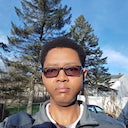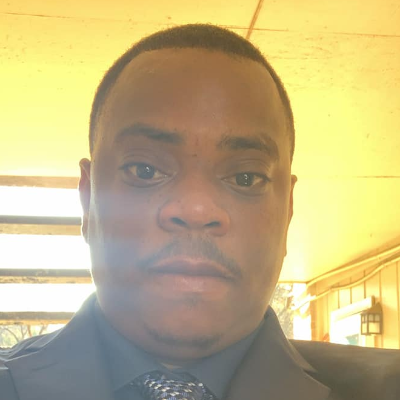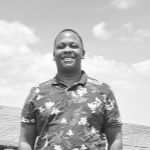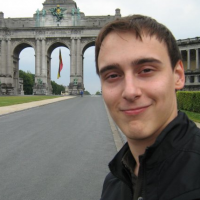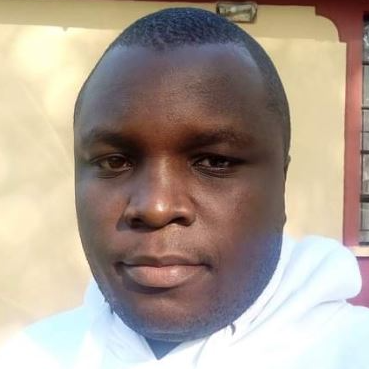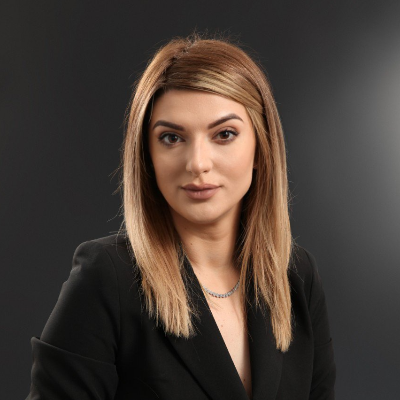Child and Adolescent Psychology
Homework Help & Tutoring
We offer an array of different online Child and Adolescent Psychology tutors, all of whom are advanced in their fields and highly qualified to instruct you.
Child and Adolescent Psychology
Child and Adolescent Psychology
As a Child and Adolescent Psychology major, you’ll learn how to work with children and adolescents with emotional and mental illnesses. According to Northwestern University, between 13 and 20 percent of children within the United States suffer from a mental illness. Mental illnesses can begin as early as fourteen years of age. Of the adolescents involved with the juvenile justice system, 70 percent have been diagnosed with a mental illness.
If your goal is a career in this field, you’ll be expected to take courses in human growth and development, with your focus on children and adolescents. As you move through the child and adolescent counseling program, you’ll advance to coursework in child and adolescent counseling and psychotherapy, completing a full course load.
Potential graduate students might consider the Applied Child and Adolescent Psychology program at the University of Washington. If you plan to earn an advanced degree, this program is ranked fourteenth by US News & World Report for its graduate psychology programs. It ranks eighth in the U.S. in its clinical psychology offerings.
You will be required to take 26 credit hours. If you are able to attend full-time you should be able to complete your courses in one year. If you choose to take classes part-time, you can complete your degree in two years.
The US Department of Psychology seeks graduate students who plan to either enter or advance within the child mental health profession. Other professionals who work with children, such as social workers, nurses and attorneys, can deepen their understanding of child development and psychology by taking these classes.
For students who plan to earn their doctorate, this program will help them narrow down their specialization in the child psychology field, as well as allowing them to gain even stronger qualifications if they plan to move into Ph.D programs in nursing, psychology or social work.
Hampshire College, located in Amherst, Massachusetts, has structured its psychology offerings with a cross-disciplinary approach. Students enrolled in the psychology program take courses drawing on a wide range of disciplines. These include psychoanalytic psychology, developmental psychology, cognitive and affective neuroscience, political psychology, and the psychology contained within music, perception, and language.
The School of Critical Social Inquiry allows students to study psychology as it connects to culture and society. These courses are structured so that they draw from several research methods, including ethnographic, interpretive, and participatory research methods. Here you’ll be able to observe and participate in new, experimental research efforts. This allows you to learn and work within different methodologies as you delve into neuroscience, language, attention, memory, music perception, emotion, and social cognition.
If you have plans to work within other disciplines, you’ll be able to develop a base for your goals at Hampshire College - the program enables you to apply psychological perspectives in the arts, music and other disciplines, as well as graduate courses in cognitive psychology, developmental psychology, clinical psychology, psychoanalysis, social work, or neuropsychology.
While this is a small sampling of the coursework offered at various colleges and universities, it should give you an idea of the variety of courses and specializations at these schools.
Indications of Sexual Abuse in a Child
When a child experiences sexual abuse, it is one of the most frightening and isolating events they will have to deal with in their young lives. Ideally, they should learn that they can trust the adults who care for them. When a predator violates this trust, the child’s ability to trust people and situations is impacted, possibly permanently.
Parents who find out that their child has been sexually abused should let them know they believe them and will do everything they can to help them. According to StopItNow, recovery is possible, if the child receives treatment and security.
“Child sexual abuse” is any behavior between a child and adult (or another child) in which the child is expected to provide sexual stimulation to the perpetrator, says Child Welfare Information Gateway. Rather than abusing the child right away, the perpetrator will attempt to entice or persuade a child by taking them on special outings or buying gifts for them. This activity is known as “grooming” the child.
Younger Children
Younger children may be vulnerable to sexual abuse, especially if the family is going through some significant changes, such as a big move or divorce. They may not be able to verbalize what is happening, especially if they are still learning to talk. They may show these indicators:
- Mimics sexual behaviors with stuffed animals or dolls
- Reverts to old behaviors, such as thumb-sucking or bed-wetting
- May wet or soil pants (not as a part of potty training)
- Uses different words for their private body areas
- Doesn’t want to remove clothes (for bathing, diaper changes, bedtime or going to the bathroom)
- Approaches other children and asks them to play sex games or act in sexual ways (sexually harmful behavior)
Even though a very young child may not be fully verbal, his or her behaviors and reactions may leave clues for parents, professionals and caregivers. If the child can only say, “Boy (man) hurt me,” while pointing to their genital area, this should be taken seriously. For children still in diapers, a parent or caregiver will recognize that the child is fearful of having his or her diaper removed or changed. In addition, the caregiver may notice physical injuries indicative of sexual abuse.
Signs in Older Children
Parents and caregivers may notice that their child has changed - emotionally and behaviorally. Children and adolescents may develop sleep issues or nightmares that seem to develop out of nowhere.
Children who have recently begun to experience sexual abuse may:
- Seem to be preoccupied or distracted
- Experience sudden mood swings, ranging from fear to rage
- Becomes hyper-vigilant (extremely observant of people and surroundings)
- Have a new-standing fear of certain individuals
- Has trouble swallowing, refuses to eat, or has a sudden change in eating habits
- Steers conversations away from “secrets” shared with an older child or an adult
- Begins to view their body as dirty or repulsive
- Displays adult-like sexual knowledge and behaviors
- May leave clues intended to start a discussion about sexual abuse or issues
- Has an older “friend” according to Parents Protect
- Has money or gifts and is unable to explain how they got them
Teens may exhibit other behaviors indicating they are being sexually abused:
- Sexually promiscuous
- Sexually active from an early age
- Injure themselves deliberately (cutting)
- Begins abusing drugs or alcohol
- Poor personal hygiene
- Compulsively eats or diets
- Runs away
- Fear of any type of intimacy
- Attempts suicide
- Becomes anxious and/or depressed
- Seeks out the company of younger children
- Displays sexual material to younger children
- Takes a younger child to a “hideout” to play “secret games,” says Parents Protect
Any one of these indicators doesn’t conclusively mean a child has been sexually abused. It is when a child or teen displays several indicators that a family member or professional should begin to consider the possibility that the child is being or has been abused. It is important to remember that children in various stages of development may take part in a wide range of sexual behaviors as a “normal” part of their development, says the Child Welfare Information Gateway.
Once a child has been sexually abused, their parents or caregivers must obtain psychological treatment so they can begin recovery. If the child is not given this opportunity, they are at risk of becoming abusers themselves. StopItNow says this is “sexually harmful behavior,” ranging from simple experimentation all the way up to full-on sexual assault. Preschoolers may act out sexually with other children, not realizing the implications of their actions. More often, it is teens who act out sexually against younger children.
Children who have not been sexually abused will display sexual curiosity, but rarely use explicit language, engage in physical sexual contact with other children or show sexual knowledge more appropriate for an adult. Parents and caregivers who see a child displaying unusual sexual knowledge should speak to the child and take them for a physical.
After a Disclosure of Child Sexual Abuse
The child’s parents will be enraged, possibly wanting to go out and find the perpetrator who harmed their child. Anything the parent does signals to the child that something is definitely wrong. Even though the child has been emotionally and physically harmed, the parents must try to communicate that the child will get beyond this. In protecting their child, the parents should:
- Try to stay calm (release anger away from the child)
- Believe what the child says, according to StopItNow
- Make the child feel safe by creating a plan with trusted adults, cutting off unsupervised contact with the perpetrator
- Relieve the child of self-blame (children are masters at assuming blame)
- Avoid expressing anger around the child
- Reach out for professional help
Potential Results of Child Sexual Abuse
Sexual abuse of a child will have its effects on survivors. Children may also develop Post Traumatic Stress Disorder or PTSD, says Psychology Today. Children with PTSD may suffer from this disorder well into adulthood; they may experience spontaneous reenactments of their abuse, withdrawn behaviors, avoidance of certain circumstances and physiological hyper-reactivity, or physical arousal.
The child who was abused at a very young age may become sexually reactive, responding to stimuli with sexual arousal. These children may also become sexually promiscuous and suffer from depressed self-esteem as they get older.
To fulfill our tutoring mission of online education, our college homework help and online tutoring centers are standing by 24/7, ready to assist college students who need homework help with all aspects of child and adolescent psychology. Our psychology tutors can help with all your projects, large or small, and we challenge you to find better online child and adolescent psychology tutoring anywhere.
College Child and Adolescent Psychology Homework Help
Since we have tutors in all Child and Adolescent Psychology related topics, we can provide a range of different services. Our online Child and Adolescent Psychology tutors will:
- Provide specific insight for homework assignments.
- Review broad conceptual ideas and chapters.
- Simplify complex topics into digestible pieces of information.
- Answer any Child and Adolescent Psychology related questions.
- Tailor instruction to fit your style of learning.
With these capabilities, our college Child and Adolescent Psychology tutors will give you the tools you need to gain a comprehensive knowledge of Child and Adolescent Psychology you can use in future courses.
24HourAnswers Online Child and Adolescent Psychology Tutors
Our tutors are just as dedicated to your success in class as you are, so they are available around the clock to assist you with questions, homework, exam preparation and any Child and Adolescent Psychology related assignments you need extra help completing.
In addition to gaining access to highly qualified tutors, you'll also strengthen your confidence level in the classroom when you work with us. This newfound confidence will allow you to apply your Child and Adolescent Psychology knowledge in future courses and keep your education progressing smoothly.
Because our college Child and Adolescent Psychology tutors are fully remote, seeking their help is easy. Rather than spend valuable time trying to find a local Child and Adolescent Psychology tutor you can trust, just call on our tutors whenever you need them without any conflicting schedules getting in the way.
